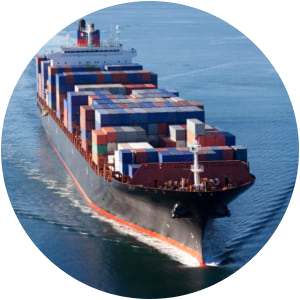Green Bay, Madison, Oshkosh, Kimberly, Muskego to receive funding to assist in spurring new development on vacant, abandoned parcels
MADISON, WI. July 21, 2016 – The Wisconsin Economic Development Corporation (WEDC) today announced that five communities will receive $2.3 million in state grants to help redevelop abandoned industrial sites throughout Wisconsin.
Madison, Kimberly and Muskego each have been awarded $500,000 under the state’s Idle Industrial Sites Redevelopment Program. Green Bay will receive $425,000, and Oshkosh has been awarded $375,000 under the program, which is administered by WEDC.
“Some of these vacant sites have been eyesores for over a decade and have stood in the way of efforts by these communities to revitalize the areas around them,” said Mark Hogan, secretary and CEO of WEDC. “Through this program, WEDC, local officials and the private sector are working together to help ensure these now-vacant properties will once again become vibrant cornerstones of their communities.”
The state’s $2.3 million investment is expected to help spur redevelopment projects that ultimately will generate nearly $150 million in capital investment.
The five sites selected for the program are:
- Garver Feed Mill Building, Madison ($500,000 grant): Plans call for redeveloping the severely blighted two-story former factory into a $20 million artisan food processing facility. The 10.5-acre facility will include commercial food production, retail and office space for local second-stage food companies.
- Parkland Mall, Muskego ($500,000 grant): The mall in the heart of downtown Muskego, which has been vacant since 1998, will be redeveloped into a $34 million Parkland Towne Center, which will include a new Sendik’s grocery store, 90 units of housing and 53,000 square feet of commercial space.
- NewPage Paper Mill, Kimberly ($500,000 grant): Closed since 2008, the 90-acre site along the Fox River is expected to become home to a $12 million mixed-used neighborhood that will ultimately include more than 60,000 square feet of commercial development and more than 800 residential housing units.
- Larsen Cannery, Green Bay ($425,000 grant): The former cannery factory along the Fox River, most of which has been idle since the 1990s, is being redeveloped into an upscale office, retail and residential development in downtown Green Bay expected to generate between $20 million and $30 million in capital investment.
- Jeld-Wen property, Oshkosh ($375,000): Plans call for redeveloping the former Jeld-Wen manufacturing site, which has been vacant since 2009, into a mixed-use development that would include residential, commercial and office space. Plans also call for a new grocery store, which would be located in an area of the city designated as a food desert. The 27- acre site is located along the Fox River, in Oshkosh’s Morgan District. The project could generate up to $60 million in private capital investment.
The Idle Industrial Sites Redevelopment Program, created in 2013, stimulates investment and job creation in idle, abandoned and underutilized manufacturing sites that cannot be solely redeveloped by the private sector due to their scale and complexity.
The grants may be used for demolition, environmental remediation or site-specific improvements defined in the community’s redevelopment plan. The goal of the program is to advance the site to shovel-ready status or to enhance the site’s market attractiveness to encourage business growth.
Since the program’s inception, it has provided $10.8 million in grants to 15 municipalities statewide.
WEDC is preparing to invite new applications for the Idle Sites Redevelopment Program and has again budgeted $2.3 million for the next round of grants. The application window will open this summer, with a deadline for submission in the fall.
###
About the Wisconsin Economic Development Corporation
The Wisconsin Economic Development Corporation (WEDC) leads economic development efforts for the state by advancing and maximizing opportunities in Wisconsin for businesses, communities and people to thrive in a globally competitive economy. Working with more than 600 regional and local partners, WEDC develops and delivers solutions representative of a highly responsive and coordinated economic development network. Visit www.inwisconsin.com or follow WEDC on Twitter @_InWisconsin to learn more.







FOLLOW US